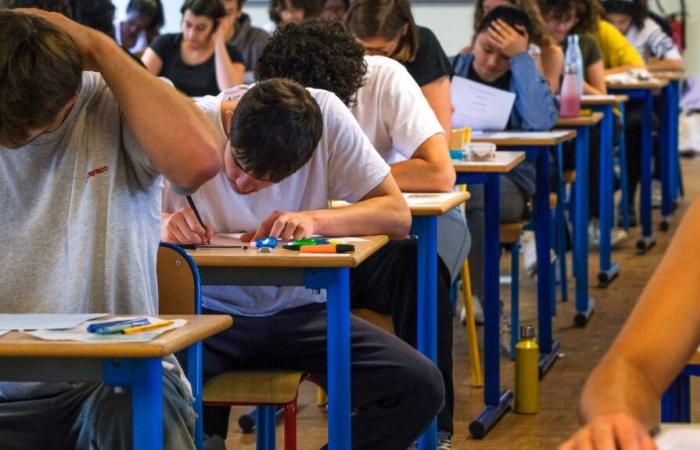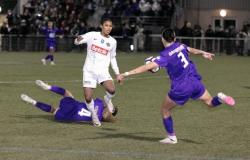“It’s great to have this”. Juliana is the mother of a 12-year-old schoolgirl in 5th grade and is full of praise for Pronote, the school life software that allows her to follow her daughter's daily life at school. “I’m on it several times a day, at least twice, if only to check his schedule or the presence of teachers”she confides. This mother also assiduously consults her daughter's notes as soon as they come across the software. “I find it good for knowing where the child is fishing and acting more quickly on this or that subject”she explains, “It involves parents enormously in the child’s school life, which was not the case before”.
Her daughter Anta is just as often connected to Pronote, and not just to view homework. “Every day, as soon as I come home from school, I put down my bag, I take my snack and I go straight to see my general average. There, it has dropped a little, I am at 12.7 whereas before it was at 13. I was shocked and a little sad”, she confides. The schoolgirl also admits to feeling a little stress with this software which can sometimes even allow her parents to discover a grade before her. “I'm a little afraid if I get bad grades…”.
These digital spaces shared between establishments and families have existed for a little over ten years now. As for teachers, the results are mixed. “It’s a great monitoring tool for parents and teachers, but it’s also a tool that also generates a lot of stress and permanent anxiety”testifies Pierre Priouret, mathematics teacher in a high school in Toulouse and member of the SNES union. Claire Fortassin, professor of philosophy in Seine-Saint-Denis, also a member of SNES, agrees. “The use of platforms on which grades are entered directly and accessible remotely tends to make grades the alpha and omega of learning,” she laments.
This professor denounces this “immediacy of the note” which tends to make “the students slaves to the grade” et “increase stress”. “Knowing that a note is never a note alone, a note goes with a comment, an appreciation, a note does not necessarily say the same thing depending on the time of year where we are. That's it. is completely crushed, these are things that completely disappear from Pronote and it also becomes a little alarming about the relationship we have with our students when we become a machine for putting notes”, she regrets.
“We are moving away from learning that allows us to emancipate ourselves.”
Claire Fortassin, professor of philosophyat franceinfo
“It even happens that we get a message if, for example, we enter grades over the weekend, even though the student has not consulted their copy, either from a student or a parent saying 'I don't understand my grade' or 'I don't understand my child's grade' when they don't have the copy in front of them”, testifies the professor.
To counter these effects, some teachers adapt and find solutions. For “preserve the educational relationship”Pierre Priouret explains that he “set notes publishing to render the copy first”. Claire Fortassin has decided to no longer enter grades at this moment but rather to wait until the end of the term. These teachers believe that this excessive importance given to grades has been reinforced by the introduction of continuous assessment in high school, which is confirmed by Manès Nadel, president of the High School Union. “If grades are so important, if they generate such stress, it is because, in fact, they are important. The closer the Parcoursup deadline gets, the more we pay attention to that and that leads to what the high school students themselves are tense about it, watch it constantly and are even quicker to protest”, assures the high school student.
“Today, grades are no longer a characteristic that allows us to evaluate our progress throughout the year, but rather a criterion that actually corresponds to constant monitoring.”
Manès Nadel, president of the High School Unionat franceinfo
In a summary of work from the National Center for the Study of School Systems (Cnesco) made public in 2023, we read that evaluation represents a source of stress for one in two students. In their note, the experts deplore an evaluation that is too focused on the grade and the average and call for a rethinking of control methods, recalling that the evaluation can be “the best of things” when she is “at the service of learning” but also “the worst thing” when it generates “discouragement, deterioration of performance, decline in self-esteem and motivation.”






